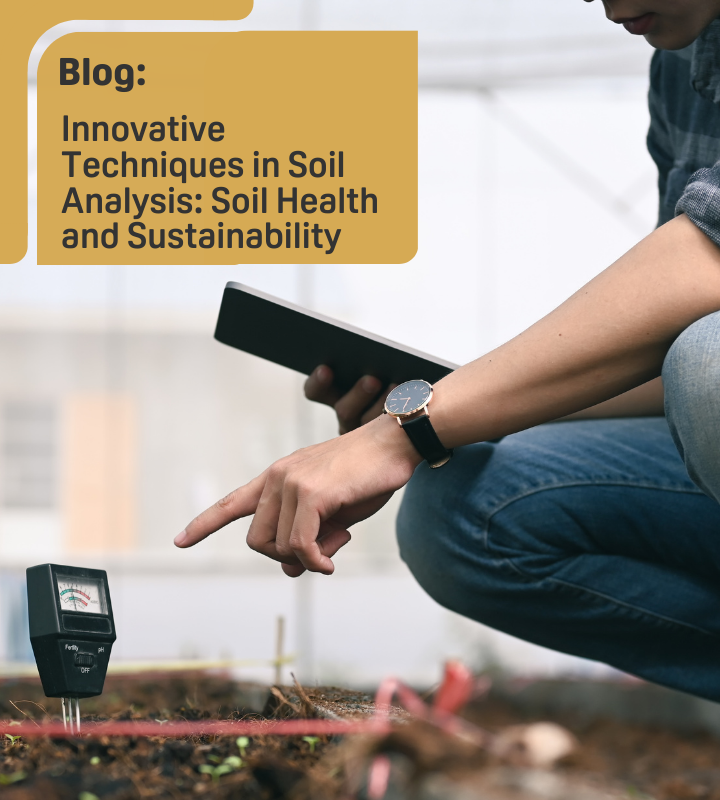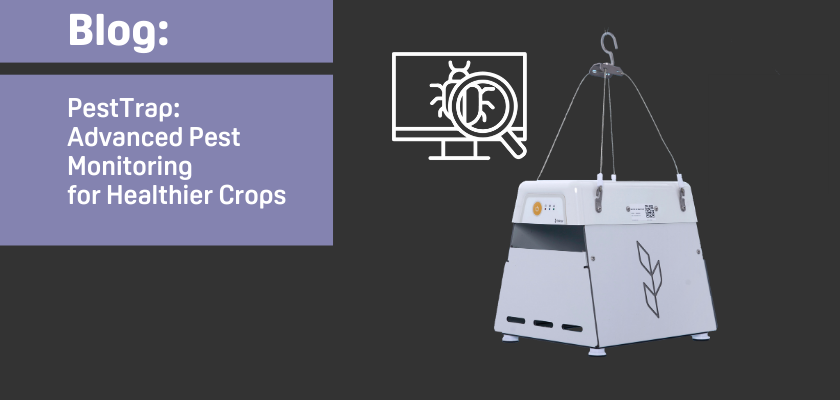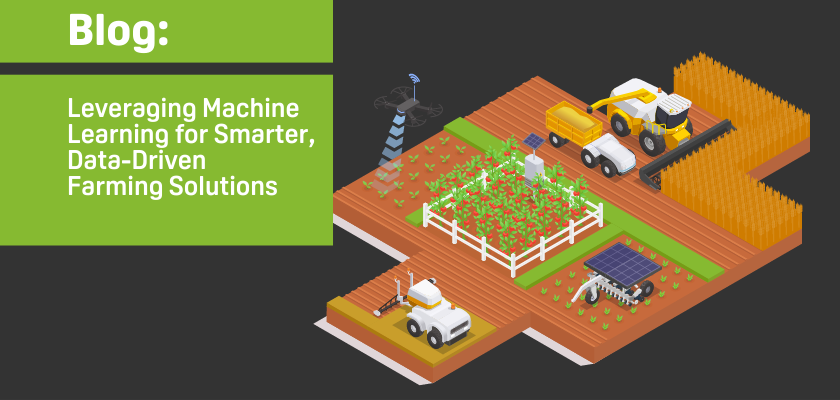

Innovative Techniques in Soil Analysis: Soil Health and Sustainability
Soil analysis is essential for understanding soil composition and health, aiding farmers and agronomists in making informed decisions to optimize crop production and maintain soil fertility. Doktar offers advanced soil testing technologies like the SoilScanner, integrating these with digital agronomy tools to enhance productivity, promote environmental stewardship, and ensure long-term agricultural sustainability.
Published on 24 May 2024
What is a Soil Analysis?
Soil analysis is critical for understanding soil composition and health. It involves examining soil samples to determine their nutrient content, pH levels, and other essential characteristics. Farmers and agronomists can make informed decisions to optimize crop production by analyzing soil, ensuring that the soil provides the necessary nutrients for plants to thrive. Soil analysis is fundamental for sustainable farming, as it helps to maintain soil fertility and promotes long-term agricultural productivity.
How to Perform Soil Analysis?
Performing a soil analysis involves several key steps. First, it is essential to collect soil samples correctly. These samples should be taken from various locations within the field to get a representative sample. Once collected, the samples are sent to a laboratory for various tests. These tests measure the soil's nutrient levels, pH, and other properties.
Why is Soil Analysis Important?
Soil analysis is crucial for several reasons:
- Optimizing Fertilization: By understanding the nutrient content of the soil, farmers can apply the right amount of fertilizers, avoiding overuse or underuse, which can harm the crops and the environment.
- Improving Crop Yields: Knowledge of soil properties helps select the right crops and implement the best farming practices, leading to improved crop yields.
- Sustainable Farming: Regular soil testing and analysis ensure that the soil remains fertile and healthy, supporting sustainable farming practices.
- Cost Efficiency: Precise soil analysis can help reduce input costs by informing farmers of the nutrients needed, thus avoiding unnecessary fertilizers and amendment expenditures.
Where to Get Soil Analysis?
Soil analysis can be conducted in several places. Agricultural extension services, private laboratories, and agritech companies like Doktar offer soil analysis services. Doktar’s SoilScanner, for instance, is a portable digital soil analysis device that provides accurate soil test analysis within minutes. This device is highly beneficial for farmers who need reliable and quick soil health data to make informed decisions on the spot. Additionally, many local agricultural colleges and universities offer soil testing services as part of their outreach programs.
How to Collect Soil for Analysis?
Proper soil sample collection is vital for accurate soil analysis. Here’s how to do it:
- Choose the Right Time: Collect soil samples when the soil is dry and not recently fertilized or amended.
- Use Clean Tools: Ensure that the tools used for collecting soil are clean to avoid contamination.
- Sample from Different Locations: Collect samples from various spots within the field to get a representative sample. Mix these samples to form a composite sample.
- Depth Matters: Typically, samples should be collected from the soil's top 15-20 centimeters. Additional samples may be taken from greater depths for deeper analysis.
- Label and Store Properly: Place the soil samples in clean containers, label them with relevant information, and store them properly before sending them to the laboratory.
Doktar's Commitment to Soil Analysis and Data-Based Farming
At Doktar, we believe that soil analysis and data-based farming are pivotal to the future of sustainable agriculture. Our mission is to transform earth data into actionable intelligence, helping farmers optimize their operations and make informed decisions. By integrating advanced soil testing technologies like the SoilScanner with our suite of digital agronomy tools, we provide comprehensive solutions that enhance productivity, reduce input costs, and promote environmental stewardship.
Doktar’s commitment to digital transformation in agriculture places soil health at the center of our approach. Soil analysis is not merely a tool but a foundation for a holistic, data-driven farming strategy. Our digital ecosystem, which includes IoT devices, AI models, and satellite imagery, all rely on accurate soil data to function effectively. By starting with precise soil analysis, we can create tailored fertilization programs, monitor crop health, and manage irrigation more efficiently.
Furthermore, soil stability analysis and regular testing allow for detecting potential issues before they become significant problems, ensuring that farmers can take proactive measures. Our commitment extends to continuous innovation in soil testing and analysis, ensuring that our technologies evolve to meet the changing needs of the agricultural sector. This proactive approach supports immediate agricultural productivity and contributes to long-term soil health and sustainability, ensuring that future generations inherit fertile, productive lands.
Conclusion
Soil analysis is an indispensable tool for modern farming. By leveraging innovative soil analysis kits and technologies, farmers can gain deep insights into their soil’s health, leading to better crop management and sustainable agricultural practices. At Doktar, we are committed to revolutionizing agriculture through advanced soil testing and analysis solutions. Our mission is to provide farmers with the tools to make data-driven decisions, optimize their operations, and ensure sustainable productivity. By integrating soil analysis into your farming practices, you enhance your crop yields and contribute to the health and sustainability of our planet’s agricultural ecosystems.
For those interested in exploring how Doktar's innovative solutions can transform your agricultural practices, visit our website for detailed information on all our products. Stay updated with the latest developments by following us on Instagram and LinkedIn, where we share insights, tips, and updates about our technologies and their impact on modern farming.

Using Soil Maps to Identify Field Fertility and Nutrient Needs
Soil maps revolutionize agriculture by providing detailed insights into soil fertility, pH levels, and nutrient needs. Tools like Doktar’s SoilScanner and Orbit empower farmers to optimize resources, improve yields, and enhance sustainability. By integrating GIS, remote sensing, and real-time data, soil maps support precision farming, long-term productivity, and environmental stewardship.

PestTrap: Advanced Pest Monitoring for Healthier Crops
PestTrap empowers farmers with precise pest monitoring using AI and IoT technologies, reducing pesticide dependency and safeguarding biodiversity. It minimizes costs, boosts crop yields, and integrates seamlessly with Doktar's smart farming tools like Orbit and Filiz. By providing actionable insights, PestTrap enhances sustainability and ensures compliance with modern agricultural standards.

Leveraging Machine Learning for Smarter, Data-Driven Farming Solutions
Machine learning is revolutionizing agriculture by analyzing vast datasets to enhance decision-making, optimize resource use, and boost productivity. Doktar leverages this technology through tools like CropMap, Orbit, and Filiz, enabling predictive analytics, efficient resource allocation, and sustainable practices. With solutions tailored to pest outbreaks and climate change, Doktar empowers smarter and more resilient farming.
